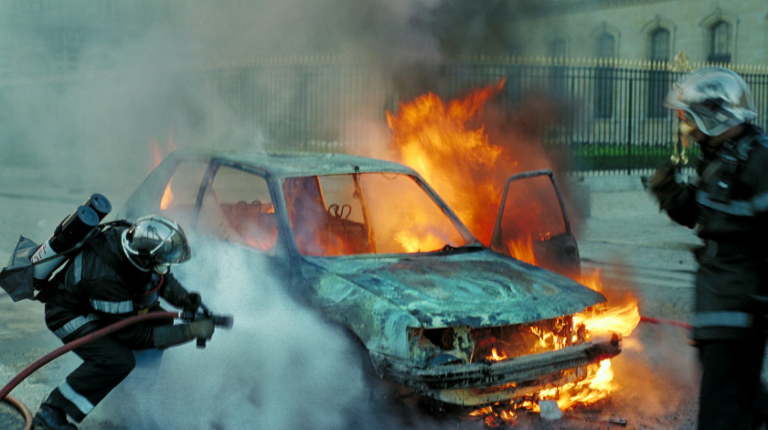The story of Nikki Catsouras, often dubbed “the Porsche Girl,” is one of profound tragedy and violation of privacy. It’s a reminder not only of the fleeting nature of life but also of the darker sides of internet culture, where personal boundaries can be easily ignored, causing devastating effects on individuals and families. This article delves into the details surrounding Nikki Catsouras’ tragic death, the subsequent invasion of privacy, and the lessons we can learn from this incident.
Who Was Nikki Catsouras?
Table Of Contents
Nicole “Nikki” Catsouras was an 18-year-old girl from Ladera Ranch, California. Known for her beauty and vibrant personality, Nikki was the daughter of Christos and Lesli Catsouras. She came from a loving family and had a relatively normal life before the events that would soon turn her name into a widely shared but deeply distressing internet meme.
The Fatal Accident
On October 31, 2006, Nikki Catsouras tragically lost her life in a high-speed car accident. Without permission, she took her father’s Porsche 911 Carrera, despite being prohibited from driving the car. Nikki’s parents had been worried about her mental health, as she had shown signs of erratic behavior.
During the drive, she was speeding on the 241 Toll Road in Lake Forest, California. Nikki lost control of the vehicle, veering across the road’s median and crashing into a concrete toll booth. The car was traveling at over 100 mph, and the impact was catastrophic. Nikki died instantly from the crash, with injuries so severe that the police initially deemed the scene too gruesome for her family to see.
Leaked Photos: The Dark Side of the Internet
Tragically, what happened after Nikki Catsouras’ death became an even darker part of the story. The crash was horrific, and graphic photos of the accident scene were taken by the California Highway Patrol (CHP) as part of standard procedure. However, two CHP employees leaked the photos, which soon found their way onto the internet.
Once on the web, the photos of Nikki’s body quickly spread across social media, websites, and even to her family via anonymous emails. Trolls sent the graphic images to her parents with vile captions like “Hey, daddy! I’m still alive,” inflicting unimaginable pain on her grieving family.
The Family’s Legal Battle
Nikki Catsouras’ family was devastated not only by the loss of their daughter but by the continued harassment they received due to the leaked photos. The Catsouras family pursued legal action against the California Highway Patrol, seeking justice for the privacy invasion and emotional distress caused by the widespread circulation of the accident images.
After a long legal battle, the family won their case in 2012, receiving a $2.37 million settlement from the CHP. Although no amount of money could undo the damage done, the victory was seen as an important step toward holding organizations accountable for the privacy and dignity of victims and their families.
The Emotional and Psychological Impact
The emotional toll on the Catsouras family was immense. They were not only mourning the loss of their daughter but also dealing with the trauma of her death being publicly shared and exploited. The internet, often a place for connection and information, became a source of horror for them as they were bombarded with the images that should never have left the authorities’ control.
This case highlights how the digital age can amplify human cruelty. It reveals the damaging effects that the loss of privacy and the sharing of sensitive content can have on individuals, especially when families are at their most vulnerable.
The Responsibility of the Internet and Media
The Nikki Catsouras case serves as a stark reminder of the ethical responsibilities that should govern both the media and individuals who share content online. The spread of her death photos was not only a legal violation but also a moral one. This incident is part of a broader conversation about digital ethics, online harassment, and the need for stronger protections when it comes to personal privacy.
As internet users, we must all be mindful of the content we engage with and share, particularly when it involves other people’s suffering. The ease with which shocking images go viral makes it all the more important to reflect on the human lives and stories behind such content.
Lessons Learned
- Privacy Must Be Respected: Privacy laws must be enforced rigorously, especially in sensitive cases like death and tragedy.
- Compassion in the Digital Age: The internet can foster cruelty, but it can also be a place for empathy. Being mindful of the consequences of our online actions is crucial.
- Stricter Guidelines for Media Sharing: There needs to be better governance on how graphic content is handled, shared, and controlled. This includes holding institutions like law enforcement accountable for mishandling sensitive information.
Conclusion
Nikki Catsouras’ death is a heartbreaking tragedy made worse by the digital exploitation of her final moments. Her family’s suffering was prolonged by the callousness of internet users and the irresponsibility of those entrusted with sensitive information. Nikki’s story serves as a reminder of the importance of privacy, respect, and compassion in a world increasingly shaped by the internet. As we move forward in this digital age, it is essential to uphold the dignity of victims and their families, ensuring that tragedies are met with sensitivity, not exploitation.
